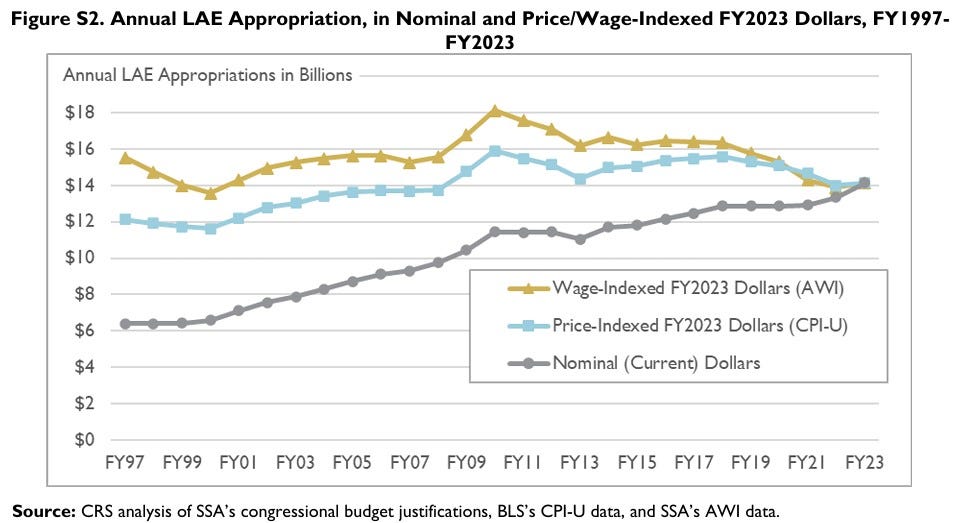Get ready for lousier customer service
Also, a win for open government in Iowa and Scott County

It’s no secret. Americans hate the customer service they’re getting today.
Maddening webchat apps, long holds times—if you can even find a phone number. And reaching a live person? Good luck.
In 2023, NPR reported 74% of Americans weren’t happy with a product or a service, and 43% were mad enough about it that they yelled or raised their voices.
Elon Musk is about to make it all worse.
The Washington Post reported recently that one of the goals of Musk’s chaotic quest to shrink government is to replace humans with machines.
“The end goal is replacing the human workforce with machines,” said a U.S. official closely watching DOGE activity. “Everything that can be machine-automated will be. And the technocrats will replace the bureaucrats.”
You think you’re not happy about customer service now.
Congressional Republicans are cheering this on. No wonder. They’ve been engaged in their own efforts to scuttle federal agencies for years.
They’ve done it the legal way, through the budget process. Slower, sure, but still effective.
Take Social Security.
In 2010, there were 67,548 full-time permanent workers at the Social Security Administration, or one for every 799 beneficiaries. In 2024, that number had shrunk to 57,148, even as the US has gotten older and the number of people who have retired has climbed significantly. That amounts to one Social Security employee for every 1,174 beneficiaries.
The future doesn’t look any better.
What do you think is going to happen when Musk and his wrecking crew get through with Social Security?
Donald Trump promises he won’t cut benefits. That may or may not turn out to be true; either way, what about processing those benefits? What about customer service?
Already, wait times for SSA’s national 800-number is 40 minutes, double what it was five years ago. What do you think it will be five years from now?
Clownish members of Congress cast blame on others for these longer wait times, but they control the purse strings. They’re the ones who are cutting Social Security’s administrative budget.
Between 2010 and 2023, the amount of money lawmakers allocated for Social Security administrative expenses shrunk by 11.2% in inflation-adjusted terms, according to the Congressional Research Service.
In other words, they’re doing to Social Security what they did to the IRS. Joe Biden tried to reverse the slide at the IRS, but the Republicans fought it. Don’t expect them to help when it comes to Social Security.
Already, Musk is claiming that Social Security is part of the largest fraud in history. That’s not a good sign for the program that 67 million Americans rely upon. About 1 in 5 Iowans get Social Security benefits. What do you think is going to happen when you don’t get your check and try to reach somebody on the phone? Good luck getting help through a “live webchat.”
Everybody wants a more efficient government. I do, too. But anybody who’s worked in the private sector, like I have, knows that when management cuts bodies, it’s usually the customer who suffers. The newspaper industry is the quintessential example. But it’s not the only one.
Besides, the improper payment rate for Social Security, while representing a large amount of money because of the immense size of the program, still amounts to less than 1% of the total, according to an inspector general’s report published last year. And most of the $72 billion in improper payments recorded between 2015 and 2022 had been recovered by last year.
By the way, that improper payment rate for the Social Security Administration is less than half the error rate for the agency administering the federal crop insurance program. When do you suppose Iowa’s DOGE disciples are going to urge Elon Musk to pay a visit there?
I’m not anti-technology. I understand it plays a key role in today’s customer service, whether it’s inside the government or in the private sector. Rather like telework.
Still, if we’re going to move at Musk-like (reckless) speed to downsize the number of humans working for federal agencies, Americans are not going to be happy.
Expect a lot of yelling.
Open government wins in Iowa
By a 4-3 majority, the Iowa Supreme Court struck a blow for open government on Friday.
The court ruled that the names of applicants for a vacant Scott County supervisor seat can’t be kept secret and must be disclosed under Iowa’s open records law.
You can read about the ruling, including a summation of the legal arguments, in this Iowa Capital Dispatch article. But rather than deal with the legal issues, I want to speak to the policy choice that was made that brought us to this moment in the first place.
It began in late 2022, when Supervisor Tony Knobbe resigned his board seat to become the county treasurer.
Instead of voting to call for a special election to fill the vacant seat, a Republican-dominated panel of county elected officials chose the appointment route, selecting Rita Rawson to serve on the board. This is allowed by law. And, in Scott County, it is a long tradition for both parties holding power—Republican and Democrat—to exclude the public in favor of choosing, inevitably, a member of their own party to fill vacant seats.
As the longtime political reporter for the Quad-City Times, I watched this happen time and again.
As the editorial page editor of the Times, I objected along with the rest of the editorial board in 2021 when the county auditor was appointed to fill a vacancy.
As we stated in an editorial then:
In our business, we hear from candidates for office all the time. They frequently talk about listening to the people and pledge that, once elected, they'll represent them all, not just those in their party. In cases like these, rarely do they follow through.
The fact is, when it comes to choosing between power and elections, politicians will always choose power – until the public holds them accountable for it; until voters ensure that their representatives, no matter the party, choose inclusion over clout.
After I left the Times, I’ve continued to voice my objections to this kind of power politics in this newsletter. It’s true that voters can also petition for a special election but as I noted two years ago the powers that be in the Legislature have made it exceedingly difficult to accomplish.
I believe the Supreme Court made the right decision Friday choosing openness. Others can argue the legal points of the decision, but as a matter of common sense, I don’t believe anybody applying for an elected position like county supervisor ought to expect their names will be kept secret as part of the process. These are positions that hold a great deal of power, and even aspirants to these jobs should get used to the idea their actions will be subject to public scrutiny.
I don’t expect the mindset that excludes voters in the event of vacancies at the county building will change anytime soon. But I am happy the Supreme Court sided with openness in this case.
One more note: The plaintiffs in this case, represented by attorney Mike Meloy, were two Scott County residents: longtime open government advocate Allen Diercks and former Scott County Supervisor Diane Holst.
The public owes them a debt of gratitude for their pursuit of this matter.
Along the Mississippi is a proud member of the Iowa Writers Collaborative. Please check out the work of my colleagues and consider subscribing. Also, the collaborative partners with the Iowa Capital Dispatch, which provides hard-hitting news along with selected commentary by members of the Iowa Writers Collaborative. Please consider making a donation to support its work, too.





Nice try ED, the GOP DO NOT WANT A MORE EFFICIENT GOVERNMENT. They want to reduce or eliminate the programs that help the elderly, disabled, and low-income workers. WHY YOU ASK?
Because they want more CORPORATE WELFARE for their large donors and just in case you missed it, they want another $4 trillion for the top .01%. This bullshit has nothing to do with a more efficient running government. This country spends much more on CORPORATE WELFARE THAN WE DO ON THE SOCIAL SAFETY NET THAT IS NEEDED FOR MILLIONS OF AMERICANS.
Thanks Ed. It's a good court decision. And a good idea to keep this important issue in front of people. Open government fosters transparency, accountability, and trust. It strengthens democracy (even if benefits are not immediately tangible or visible). It ensures a more just, informed, and free society. In DC, our President kicks some media out of press coverage opportunities; in DSM, our court rules in favor of open meetings and is a solid breath of fresh air.